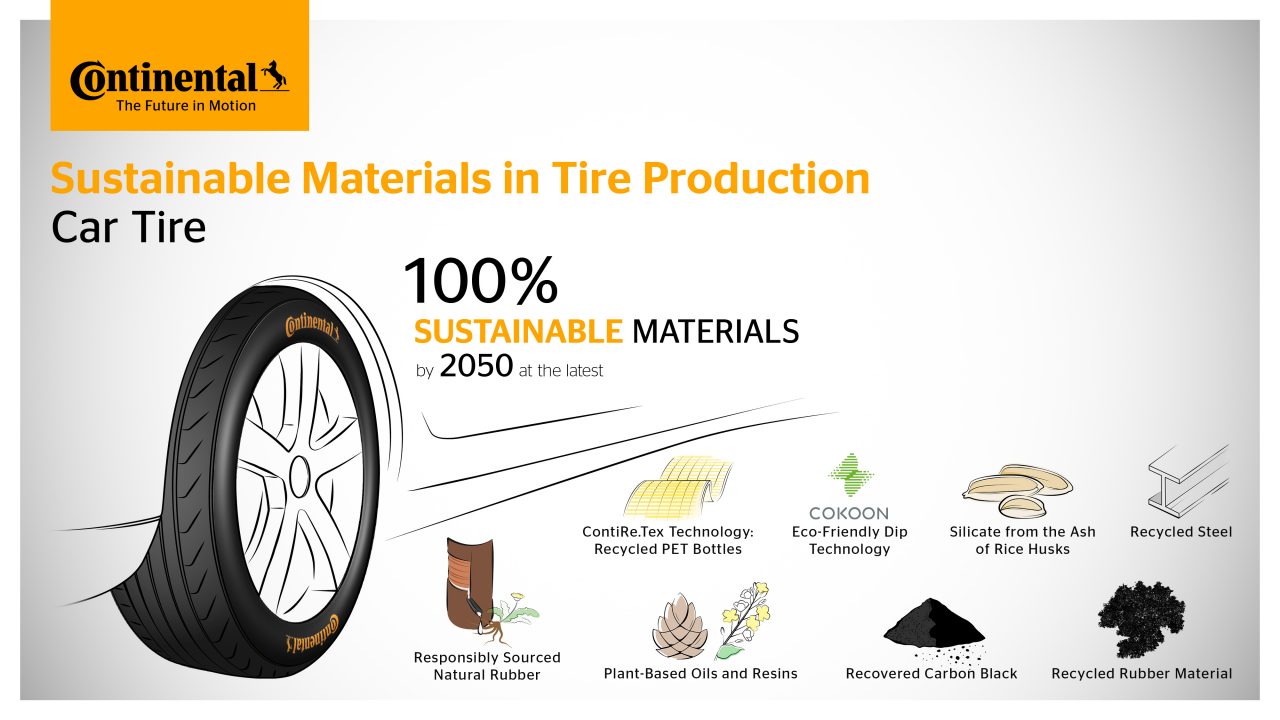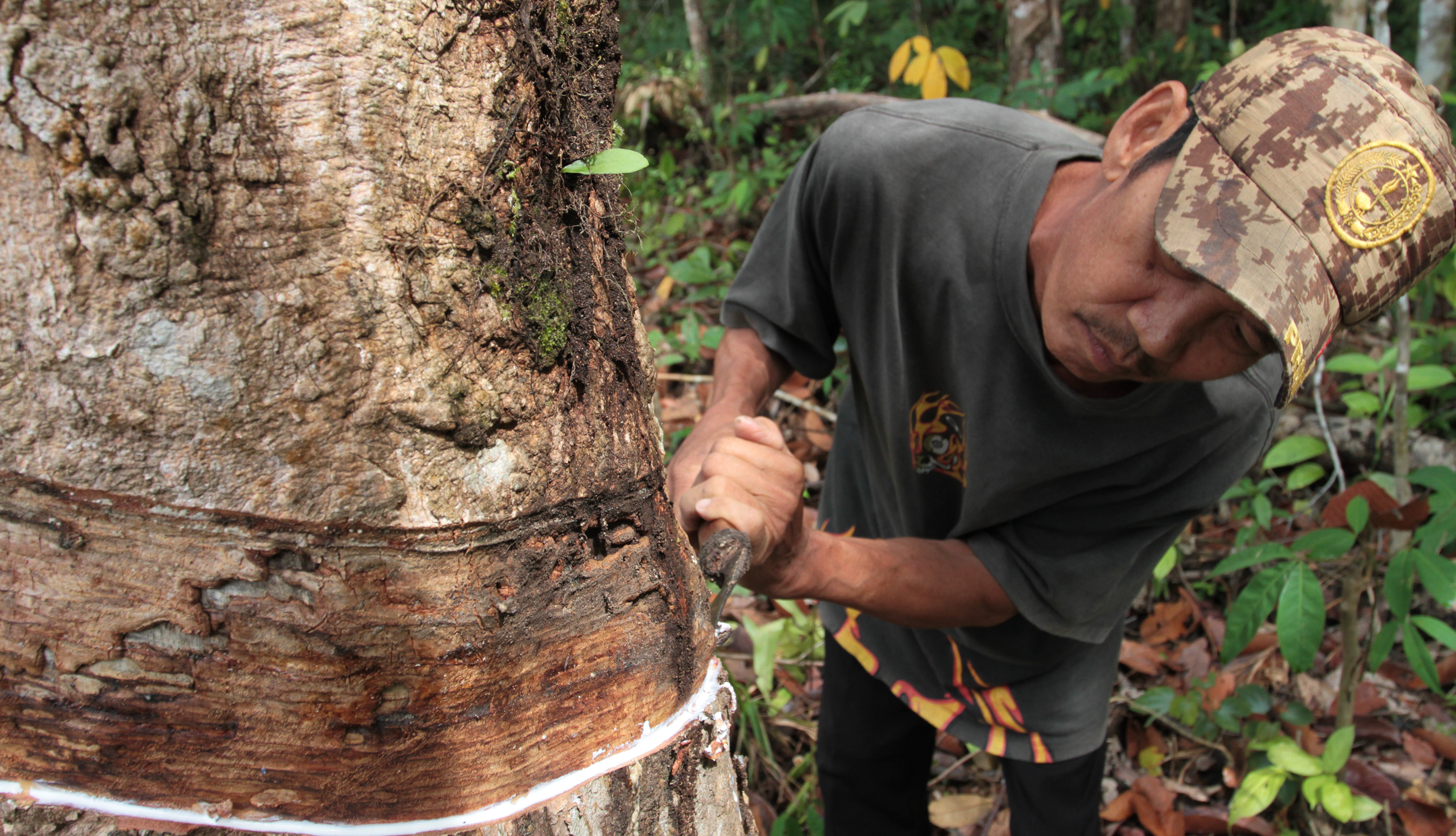Visit Continental Tires in your country for local vehicle fitment
Material Sourcing
Sustainable Materials

Depending on the application, season and environment, tires have to fulfill specific requirements. This can be seen in, for example, the tread design. But in other areas – the composition of the rubber compound, for example – these changes are not so readily visible.Passenger car tires from Continental consist of as many as a hundred different raw materials.
Their precise composition has a major impact on the tires and their handling characteristics. The ability to deploy the various materials with their unique properties and interdependencies in specific ways is a complex balancing act for Continental’s engineers and material experts. Only when all the materials are ideally matched to each other can safe, energy-efficient and durable high-performance tires be created.

With our so-called ContiRe.Tex Technology, we have developed a more energy-efficient and environmentally friendly alternative that enables us to reuse between nine and fifteen PET bottles per tire, depending on the tire size. The PET bottles used are sourced exclusively from regions where is no closed recycling loop.
We are continuously analyzing and reviewing the raw materials used to produce our tires. With COKOON, we have succeeded in replacing resorcinol and formaldehyde in the production of fabric for tires. Both substances have previously been used to bond fabric reinforcing materials with rubber compounds.
In addition to rubber, fillers such as silica are essential to tire assembly. Silica, for example, helps to optimize characteristics such as grip, rolling resistance and tire life. In the future, rice husks will be used as the source material for sustainably produced silica. Rice husks are a waste product of rice production and cannot be used as food or animal feed. Silica derived from the ash of rice husks is more energy-efficient when used in manufacturing than that obtained from conventional materials such as quartz sand.
Plant-based oils – such as rapeseed oil and resins based on residual materials from the paper and wood industries – already offer an alternative to crude-oil-based fillers in Continental's tires. Only oils that meet technical quality standards and are not suitable for consumption are used. Oils and resins allow for flexibility in terms of tire compounds and so improve the material’s grip.
Continental is making use of mechanical processing of end-of-life tires. Rubber, steel and textile cord in particular are separated, in a highly sophisticated process, from one another. The rubber is then prepared for re-use as part of new rubber compounds.


